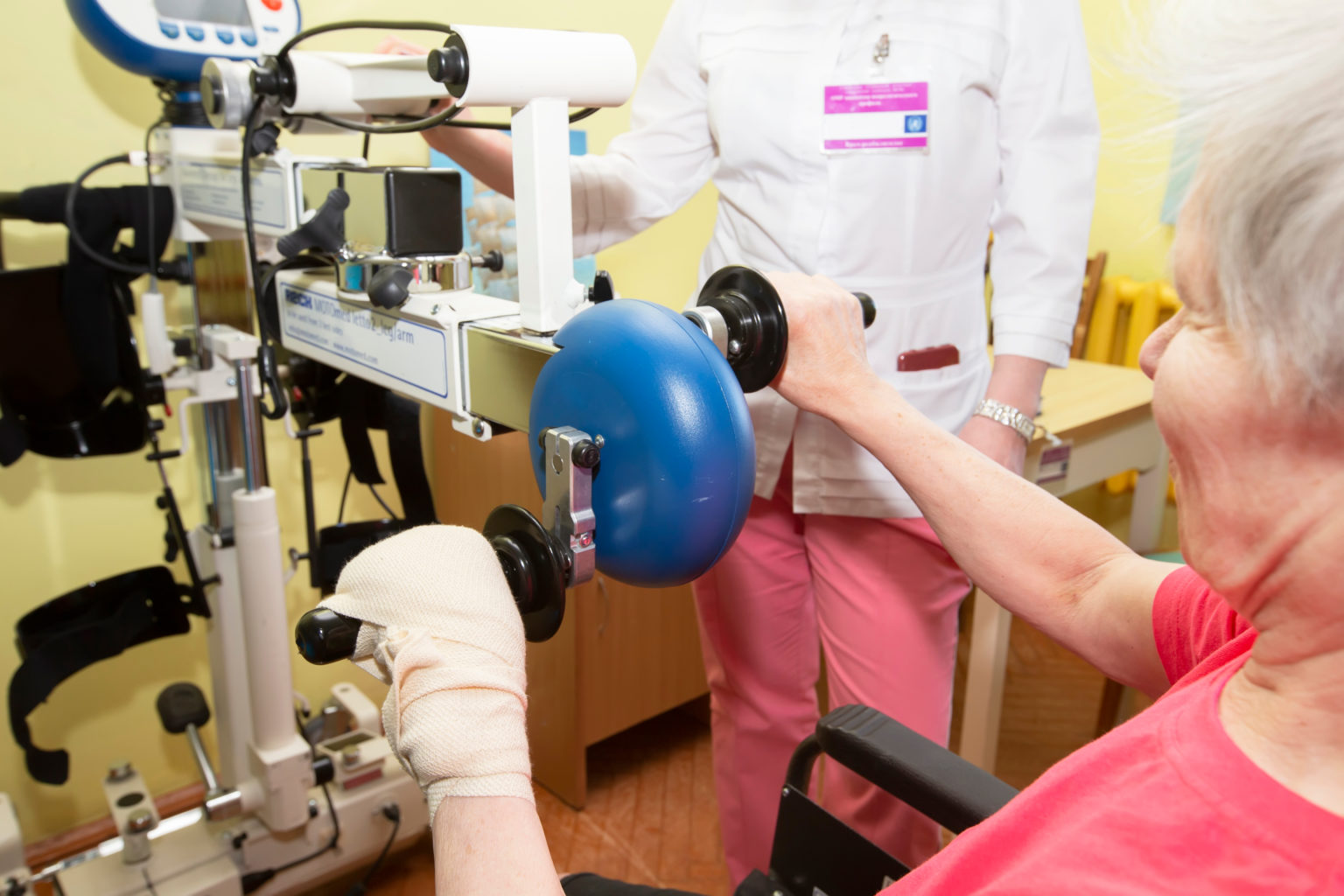06.29.2021
By FSG Dev
Could speed training lead to better arm recovery after stroke?

Associate Professor Nicolas Schweighofer aims to find out, thanks to a new grant from the National Institute of Neurological Disorders and Stroke.
NEARLY 800,000 PEOPLE SUFFER A STROKE every year in the U.S., with more than 80 percent of them experiencing weakness or paralysis in their arms and hands afterward. While there are a number of interventions for recovering strength in these extremities, there hasn’t been a consensus on which is most effective — something Associate Professor Nicolas Schweighofer PhD ’95 aims to change.
Schweighofer and his research team — which includes co-investigator Professor Carolee Winstein MS ’84 — recently received a $422,417 two-year grant from the National Institute of Neurological Disorders and Stroke for their study, “Fast training promotes recovery of arm movements post-stroke via cerebellar-mediated anticipatory feedforward control.”
The study, which is one of the first to link the pathophysiology of the cortico-cerebellar network and motor control in the context of neurorehabilitation for stroke, will examine the ways in which intensive speed training impacts outcomes.
Its general hypothesis is that intensive speed training — a type of training that emphasizes many repetitions of fast arm movements in a skill learning task — is effective in improving the recovery of arm movements of individuals with mild to moderate motor impairment post-stroke.
Schweighofer joined the division’s faculty in 2004 as a tenure-track assistant professor. He has held joint appointments at USC Dornsife’s graduate neuroscience program and USC Viterbi’s computer science and biomedical engineering programs over the years. In 2011, he was appointed to associate professor. He is the director of the Computational Neuro-Rehabilitation Laboratory.
Research reported in this publication was supported by the National Institute of Neurological Disorders and Stroke of the National Institutes of Health under Award Number R21NS120274. The content is solely the responsibility of the authors and does not necessarily represent the official views of the National Institutes of Health.

